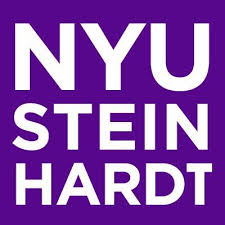New York University: Nutrition and Food Studies (BS, MS, PhD)
The Department of Nutrition and Food Studies recognizes the fundamental importance of food and nutrition to human well-being and pleasure.
- Type:
- Food Studies
- Categories:
- Degree Programs, Doctoral Degree, Masters Degree, Undergraduate Degree
- Keywords:
- General info
-
The undergraduate program in Nutrition and Food Studies has two concentrations from which students can choose: Nutrition and Dietetics, preparing students for dietetic internships to become eligible for registered dietetian (RD) credentials, or Food Studies.
In addition, the department offers minors in Nutrition and Food Studies, for students of other majors who wish to learn about either area.One of the first master’s degree programs in the US devoted to food scholarship, Food Studies at NYU employs approaches from the humanities and social sciences and prepares you to analyze the current American food system, its global connections, and local alternatives. You'll examine cultural, political, economic, environmental, and geographic approaches to food within local, urban, and global contexts.
This 40-credit master of arts program requires 19 credits in mandatory coursework that covers food systems, culture, and policy, as well as a research component. Beyond these requirements, you can take 21 credits in specialization modules (policy/advocacy, business/social entrepreneurship, media/cultural analysis), allowing you to dig deeper into your interests.
The doctoral program in Food Studies offers an interdisciplinary approach to the study of food in its historical and cultural dimensions. Employing methods from the humanities and social sciences (archival, ethnographic, survey, oral history, statistics, and semiotics), the program prepares students for teaching and research at the university level, as well as in institutions outside academia. In consultation with an advisor and a doctoral committee, students tailor their curriculum to a particular research interest, as well as develop their course of study and their dissertation research.
Current research focuses on themes such as:
- Professor Amy Bentley: industrialization of the food supply and its effects on taste, health and culture in the 20th-century United States
- Professor Gustavo Setrini: small farmer value chains in Paraguay and the organic and fair trade produce export industries in Peru
- Professor Jennifer Berg: iconic Jewish foods and Mexican kitchen workers
- Professor Krishnendu Ray: immigrants in the urban food system as workers, consumers, entrepreneurs, and home cooks, and the ways they sustain and transform city cultures
- Professor Carolyn Dimitri: the social and environmental externalities in the food system






New York University: Nutrition and Food Studies (BS, MS, PhD)
The Department of Nutrition and Food Studies recognizes the fundamental importance of food and nutrition to human well-being and pleasure.